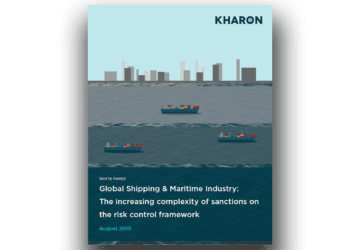with co-author Hena Schommer
Clifford Chance’s Wendy Wysong and Hena Schommer discuss the recently passed Export Control Reform Act (ECRA) and detail what the regulation will mean for and require of the organizations it impacts.
Honestly, it is understandable if companies may have missed that the recently-passed Export Control Reform Act (ECRA) included permanent statutory authority for the Antiboycott Regulations (ABR).[1][2] These regulations, codified in Part II of ECRA as of August 13, 2018, prohibit U.S. companies from complying with some aspects of other countries’ boycotts that the United States does not support.
However, aside from adding an unnecessary hyphen to “Antiboycott” in the title and raising the penalties for violations to $300,000, the Anti-Boycott Act of 2018 does nothing to expand, narrow or clarify coverage of the ABR.[3] Historically and to this day, the ABR have only been applied to the Arab League boycott of Israel, to U.S. persons and entities and transactions in U.S. commerce.
And yet, despite this seemingly narrow scope, antiboycott restrictions can ensnare unsuspecting companies that do not understand their particular nuances and global reach. Every year, there are non-U.S. branches of U.S. companies, shipping companies and banks that are charged with violating the ABR. Fortunately, the agency that enforces this law and regulations, the Office of Antiboycott Compliance (OAC), within the Department of Commerce Bureau of Industry and Security, continuously monitors its advice line to help companies deal with the 84 pages of complex regulations.
What and Who the Act Covers
The coverage of and definitions in the Act, like the ABR before it, are slightly different than other regulations, recognizing the reality of U.S. persons living and working in “boycotting” countries.[4]
Broadly stated, U.S. persons are prohibited from refusing or agreeing to refuse to do business with or in a boycotted country, or with a national of a boycotted country or a boycotted person, if the transaction is in U.S. commerce. There are six categories of prohibited boycott-related conduct set forth in the Act, including acts such as the outright refusal to do business; furnishing information about a business relationship, race, religion, sex or national origin; and implementing letters of credit with prohibited conditions. Posing unique challenges for automated screening systems, a boycott request does not need to mention Israel, a boycott or the word blacklist to be caught by the Act.
Under the Act, “U.S. persons” denotes U.S. residents or nationals, including those traveling abroad, unless they reside overseas and are employed by non-U.S. persons — a key exception. It covers U.S. companies and associations in the United States, but also “controlled-in-fact” non-U.S. subsidiaries, affiliates, branches, offices or other permanent non-U.S. establishments of U.S. concerns. “Controlled-in-fact” entities are those for which a U.S. company has the authority or ability to establish the general polices or to control day-to-day operations.
To be covered, a transaction must be in the interstate or foreign commerce of the United States. Non-U.S. commercial activity would be in U.S. commerce if, for example, U.S. goods or services were involved, including financial services. For example, a letter of credit may trigger coverage if it is implemented by a U.S. bank, even if the transaction involves no other U.S. nexus.
Moreover, in many cases, the request to take any action which has the effect of furthering or supporting a boycott must be reported to the OAC, regardless of the action taken in response. Failure to report receipt of the prohibited request is a separate violation from the action taken in response so that “one will get you two,” in the worst-case scenario.
The Treasury regulations are slightly inconsistent with the Act, despite the common goal, in that they are focused on U.S. taxpayers, define covered conduct somewhat differently, do not require a nexus to U.S. commerce, have broader reporting requirements and are enforced through adverse tax consequences rather than civil or criminal penalties. Furthermore, what is nonreportable conduct for Commerce may need to be reported to the Treasury (and vice versa), so your understanding must include both regulatory regimes to ensure compliance.
What the Act Doesn’t Cover
There are a number of important exceptions to coverage of the Act. For example, a U.S. person can refuse to do business with a boycotted country for non-boycott reasons, such as compliance with the import laws of a boycotting country or reasonable security measures, which may dictate an agreement not to ship on a route that includes a boycotted country or to use a boycotted country’s flagged vessels under the “war risk exception.”
Moreover, an owner/master or charterer/carrier of a vessel may be allowed to self-certify (i.e., provide a certificate stating that the ship is allowed to call at Arabian ports) but the shipping company or its agent may not. Application of this exception requires a strict word-by-word reading of the exact language used in the request and any response, as well as consideration of the reporting requirements, for U.S. persons, simply for receiving the request.
And fundamentally, if you just don’t like the goods or services offered, you don’t have to accept them merely because they come from a boycotted country.
But Does the Act Cover….?
The new Act does not address consumer boycotts, like the Boycott, Divestment, and Sanctions (BDS) movement, which is mainly found on college campuses and seeks to put economic pressure on Israel through the boycott of Israeli-origin goods. It could, but currently is not, used to combat boycotts of other countries (e.g., Qatar, India, Taiwan) or territories (e.g., laws of other countries prohibiting imports of goods/services produced in occupied territories, such as the West Bank).
And it still allows U.S. companies to choose whether to do business with or in Israel for valid reasons other than in support of the boycott. For example, while Airbnb is facing civil rights suits for its decision to suspend vacation listings in West Bank settlements that “are at the core of the dispute between Israelis and Palestinians,” it is not facing an enforcement action by the OAC.
Conclusion
It is worth compiling and analyzing the
language used in transaction documents from countries that support the Arab
League boycott and educating your staff to recognize certain trigger terms and
concepts. And keep in mind that the obligations under the Act and regulations
don’t end with rejection of the request; reporting those requests can be just
as critical. Overlooking or misunderstanding the antiboycott restrictions,
whether those of Commerce or Treasury, can result in civil or criminal
penalties, adverse tax consequences, loss of business opportunities and
negative media attention.
[1] The compelling charm of these laws, like the author’s home state, is not immediately obvious to everybody. https://www.washingtonpost.com/news/morning-mix/wp/2018/10/18/honestly-its-not-for-everyone-says-nebraskas-self-deprecating-new-tourism-campaign/?utm_term=.1b4410fdb262
[2] The ABR are at 15 CFR Part 760, “Restrictive Trade Practices or Boycotts.”
[3] Nor does it attempt to unify or homogenize these antiboycott regulations, administered by the Department of Commerce, with those of the Department of Treasury, IRC § 999. The tax antiboycott provisions also aim to discourage participation in or cooperation with an unsanctioned boycott by imposing reporting obligations on U.S. taxpayers and threatening certain tax benefits.
[4] Unlike the Treasury Department, which publishes an annual list of “boycotting countries,” OAC considers the term to include any country from which a boycotting request is received. For example, the Treasury has delisted Bahrain and Oman, but OAC notes that neither country rescinded their boycott laws and OAC still sees requests from these countries. As of February 6, 2019, the Treasury’s List includes Iraq, Kuwait, Lebanon, Libya, Qatar, Saudi Arabia, Syria, the UAE and Yemen.



 Wendy L. Wysong is a partner at
Wendy L. Wysong is a partner at 









